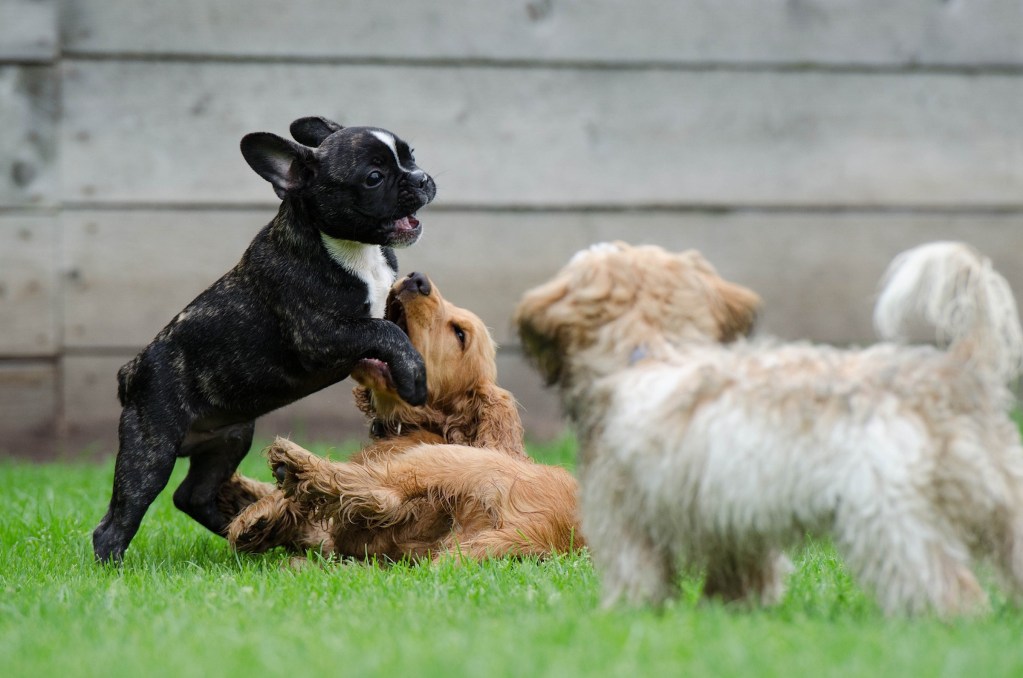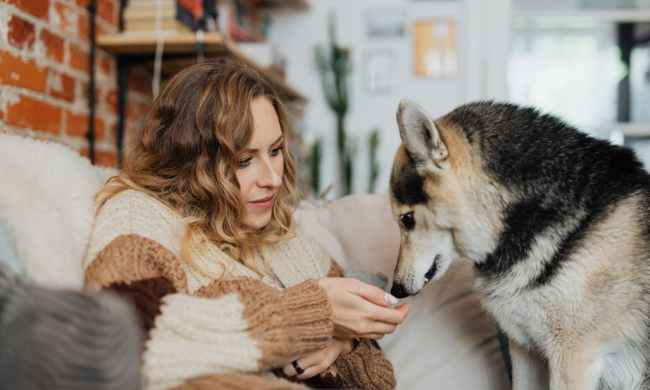If you’ve ever watched puppies play together, then you know that biting and nipping are all part of the fun. Chewing and biting help growing puppies investigate the world around them and also help relieve sore gums when teething. However, while mouthing on your hand might have been funny when your little one was a ball of fluff, it’s no joking matter as he gets older. Those razor-sharp puppy teeth can really hurt. If you’re tired of living with broken skin and painful bruises, you’re probably wondering just when do puppies stop biting?
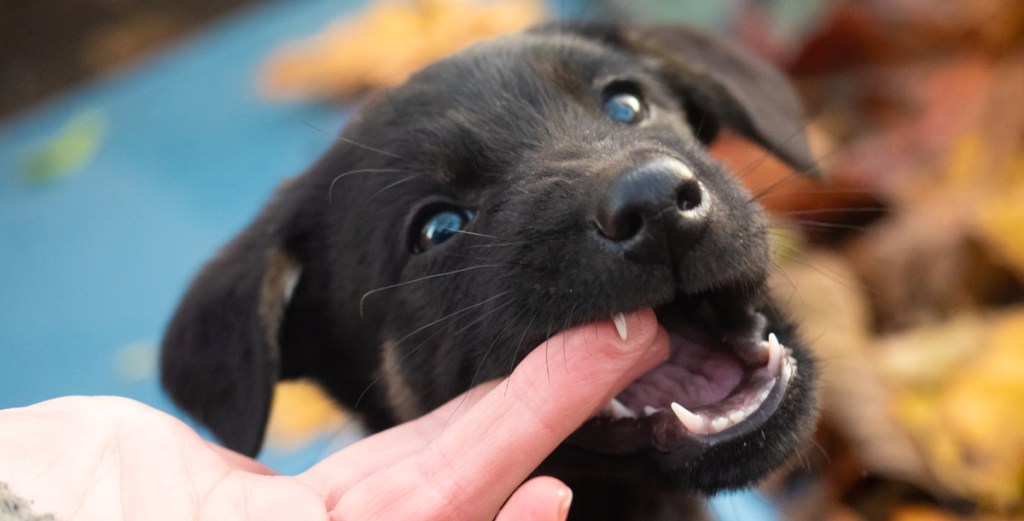
Do puppies grow out of biting and nipping?
While chewing everything in sight may decrease after your puppy is done teething (which can take anywhere from four to six months) they don’t naturally grow out of biting. The more a puppy is allowed to clamp down on your skin, the more he’ll continue to do it. As a responsible pet parent, it’s your job to teach your dog appropriate behavior.
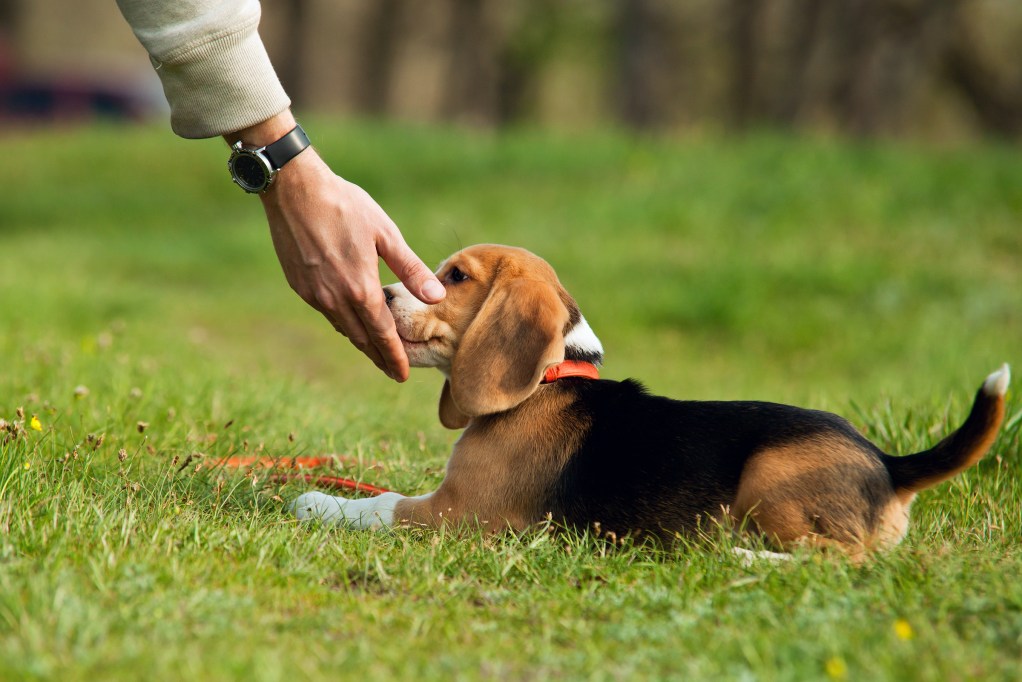
What is not normal puppy behavior?
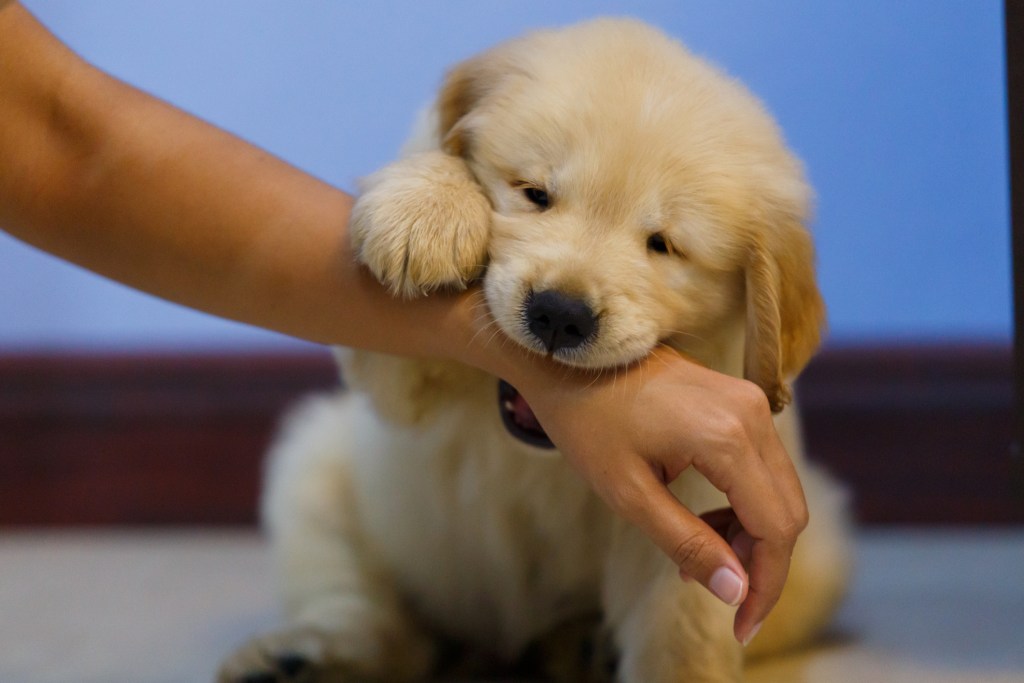
How to train a puppy to stop biting and nipping
While biting is a normal part of being a puppy, the sooner you train your puppy, the easier it will be to teach him not to bite you. These tips can help you get started.
Teach bite inhibition first
While the ultimate goal is to stop a puppy from biting or nipping humans when playing, an important first step is to teach bite inhibition, say training experts at the American Society for the Prevention of Cruelty to Animals (ASPCA). Your puppy is going to mouth, and that’s natural. But you want him to learn to be gentle. Puppies need to learn to control the strength of their jaws so that as adults, if they ever bite out of fear or pain, they will have learned not to bite hard.
A puppy first learns to be gentle from his mom and littermates. For instance, if a puppy bites too hard when playing, his sibling will yelp in protest or his mom will intervene to stop the roughhousing. Puppies have to learn these lessons all over again when interacting with their human pack.
The ASPCA recommends drawing on the techniques used between littermates when teaching your dog to be gentle. So, if your puppy bites too hard on your skin, use a high-pitched “ouch” to interrupt the behavior. As soon as your puppy stops biting, give him praise and a treat. Some dogs may get more excited when you yelp. In this case, when your dog bites down too hard, just get up and walk away.
Use redirection to stop biting
Your ultimate goal is to train your puppy that teeth don’t belong on human skin, and redirection is a great way to do this. When your growing puppy starts to mouth or bite down on your hand, immediately redirect him to a tug toy or favorite chew bone. According to ASPCA experts, the goal is that your dog will “start to anticipate and look for a toy when he feels like mouthing or biting you.”
Some breeds, such as border collies and Shetland sheepdogs, have strong herding instincts and may nip at ankles to “herd” human family members as they move around the house. If you live with an ankle nipper, keep his favorite toy in your pocket. When your dog attacks your ankles, stop walking and wave the toy in his direction. Once your pup grabs the toy, praise him and move on. Keep repeating this exercise until you can walk around the house without being attacked by puppy teeth.
Teach puppies that when biting starts, playtime ends
Puppy time-outs are a great way to teach your four-legged youngster that when he bites or nips, the game is over. Since puppies live to play, they catch on pretty quickly. Time-out can mean that you quietly leave the room (be sure it’s puppy-proof when leaving your dog alone), or you can gently pick up the puppy and put him in his enclosure or a small gated room. Leave him alone for 30 to 60 seconds, and then calmly resume playing. Keep repeating this exercise until the puppy gets the message.
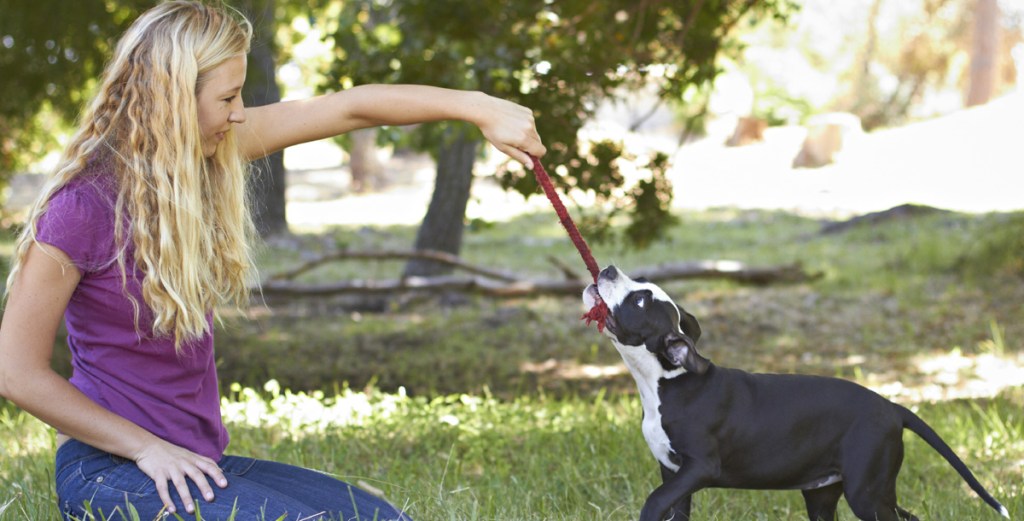
Toys provide something acceptable to chew on
According to the American Kennel Club (AKC), during a puppy’s period of rapid development, which is from 2 to 10 months old, it’s important to give him appropriate toys. These toys can help with the discomfort of teething. They also help with training and provide mental stimulation. Be sure to choose a toy or bone best suited to your dog’s size and personality. The AKC offers a great roundup of the best toys for puppies.
With consistent positive motivation training, most puppies will learn to play without biting and nipping humans. If, despite your best efforts, your dog still bites and you’re concerned that he’s getting aggressive, then it’s time to call in a behaviorist to design a training program for your dog. The sooner you work on the problem, the happier you and your dog will be as he transitions into adulthood.
